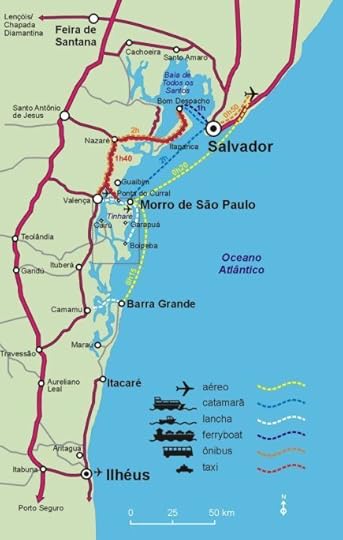What do you think?
Rate this book


496 pages, Paperback
First published January 1, 1958





When he came out of the bathroom, he was fully dressed. Gabriela had just placed his breakfast on the white tablecloth: steaming pots of coffee and milk, fried bananas, yams, cassava, and corn meal with coconut milk. She stood in the doorway to the kitchen and looked at him as if to say:There follows another couple hundred additional pages of languorous scene setting and various scandals before emotional justice is served and
"The gentleman must tell me what he likes."
With rapture in his eyes, Nacib swallowed mouthfuls of corn meal. His gluttony held him to the table while his curiosity impelled him to hurry; it was time for the funerals. The fried banana was sublime. By a supreme effort he tore himself from the table. Gabriela had tied her hair with a ribbon. Nacib thought how good it must be to bite the back of her brown neck.

